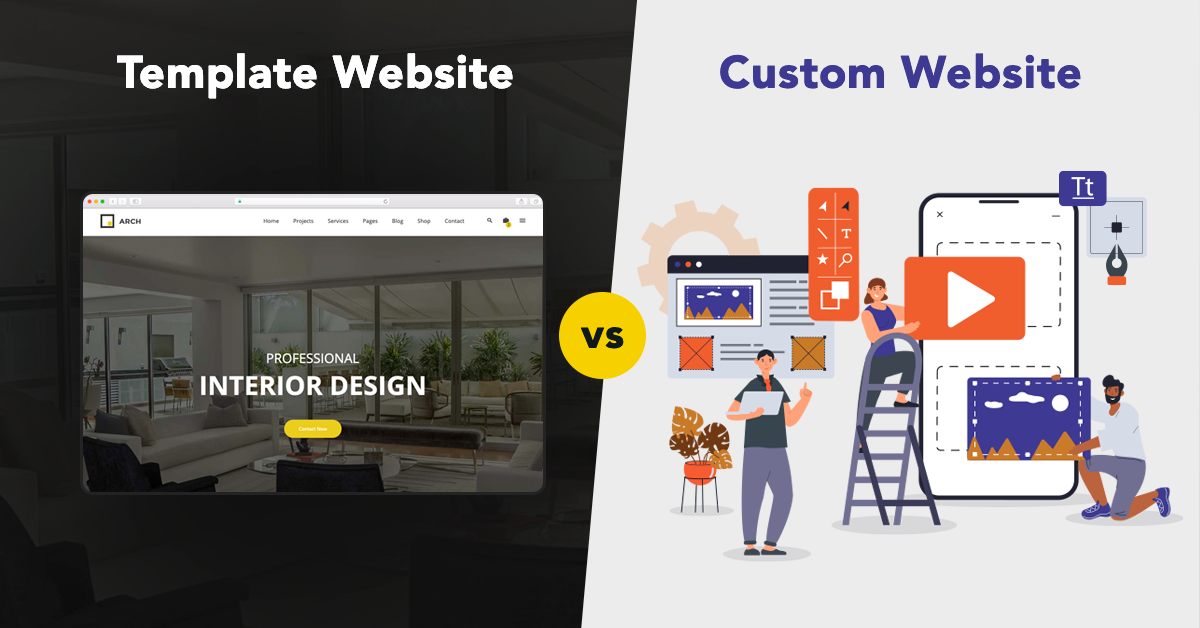
In the digital age, every business, from multinational corporations to small businesses, faces the critical decision of how to establish or upgrade their online presence, which often centres around the choice between using website templates and creating a professional custom website. For many small businesses and even larger enterprises, this decision is fraught with considerations of both customization, cost, time, brand representation, and functionality.
Website templates, widely available and user-friendly, offer a quick and budget-friendly solution for businesses to establish and customize their own website. They are particularly appealing to small businesses and those who are just starting out, providing a basic online presence without the need for extensive web design knowledge or a substantial investment. However, while these templates offer ease and accessibility, they come with limitations in customization and uniqueness, which can be crucial for a business striving to stand out in a competitive market.
On the other hand, a custom website, professionally designed and built from the ground up, offers a unique and tailored online presence. Such a website not only aligns closely with a company’s branding and business strategy but also provides a scalable and flexible platform that can grow with the business. While initially more costly and time-consuming than a template, a custom site can be a wise investment for those companies looking to project a professional image and stand out in the digital landscape.
The choice between a custom website and a template-based website is a significant one, influenced by various factors including budget, time, the unique needs of your brand and target audience, and the functionalities required for your business operations. It’s a decision that weighs more heavily on small businesses, which might initially lean towards website templates for their cost-effectiveness, but also need to consider the long-term benefits of a professional, custom-built website. Consider these five crucial factors in your decision:
Understanding Your Business Needs
To effectively implement customization in your marketing strategy, it’s essential to understand your business needs. This involves identifying your target audience, defining your marketing strategies, and determining how customization can help you achieve your goals. By aligning your website choice with these elements, you can create a more effective and engaging online presence.
Identifying Your Target Audience
Identifying your target audience is crucial in developing effective marketing strategies. Who are your ideal customers? What are their needs, preferences, and pain points? Understanding your target audience will help you create personalized marketing messages that resonate with them. Consider factors such as demographics, behavior, and preferences to create buyer personas that guide your marketing efforts. This knowledge will not only inform your website design but also ensure that your marketing campaigns are tailored to attract and retain your ideal customers.
Defining Your Marketing Strategies
Defining your marketing strategies involves determining how you will reach and engage with your target audience. This includes identifying the marketing channels you will use, such as social media, email, or content marketing, and developing a content strategy that speaks to your audience’s needs and interests. Consider how customization can be used to enhance your marketing strategies and improve customer engagement. For instance, a custom website can offer unique features that align with your marketing messages and materials, providing a cohesive and compelling brand experience.
Budget

When deliberating the budget for your professional website, it’s crucial to weigh the costs and benefits of a custom website against those of a website template. The decision to invest in a website, your brand’s digital storefront, customized marketing, should be made with careful consideration, especially if you plan to sell services or products through online stores.
Custom websites, while more expensive, offer consumers a tailored experience that can significantly elevate your brand’s online presence. They are particularly beneficial for businesses looking to establish a robust online store or a unique platform to sell services. The investment in a custom website should be viewed in light of its potential to enhance your brand’s digital impact and drive sales. If your annual revenue allows room for this investment, it’s often a prudent choice.
On the other hand, a website template is an economical solution for those just starting out or with a limited budget. Templates provide a foundational structure to create your own website quickly and at a lower cost. While they may lack the bespoke features of a custom design, many templates are sophisticated enough to support basic e-commerce functions and service offerings. They are ideal for small businesses or startups that require a professional online presence without the hefty price tag of a custom design.
However, it’s important to note that while website templates offer immediate cost savings, they may have limitations in terms of scalability and customization in marketing itself. As your business grows, especially if you plan to expand your online store or diversify the services you offer, these limitations could necessitate a more substantial future investment in a custom website.
Time

When it comes to building your own website, the time factor is a critical element, especially if your goal is to launch a professional website swiftly. The timeline for launching a website can vary significantly depending on whether you opt for a website template or a custom design created by professional web designers. Technology advances can also impact the timeline and effectiveness of custom websites.
Website Template
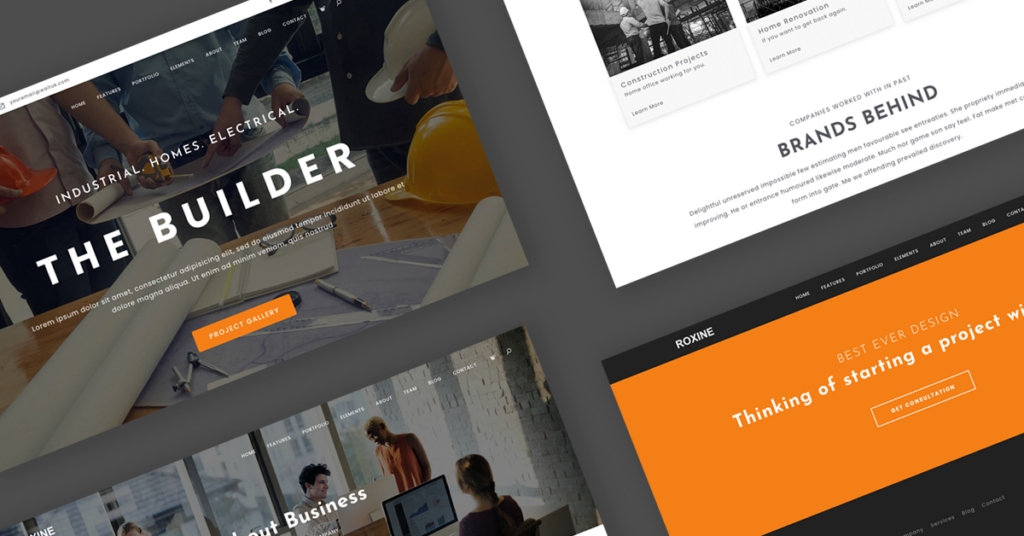
If speed is of the essence, website templates are the go-to solution. Using a website builder, you can select a pre-designed template and have a functional website up and running in a matter of days, or even hours. This approach is particularly beneficial for businesses eager to establish an online presence quickly, perhaps to capitalise on a timely market opportunity or to start selling products or services online without delay. The trade-off, however, is the level of customization and uniqueness. While templates offer ease and speed, they can limit your ability to stand out or tailor the site extensively to your specific brand needs.
Custom Professional Website
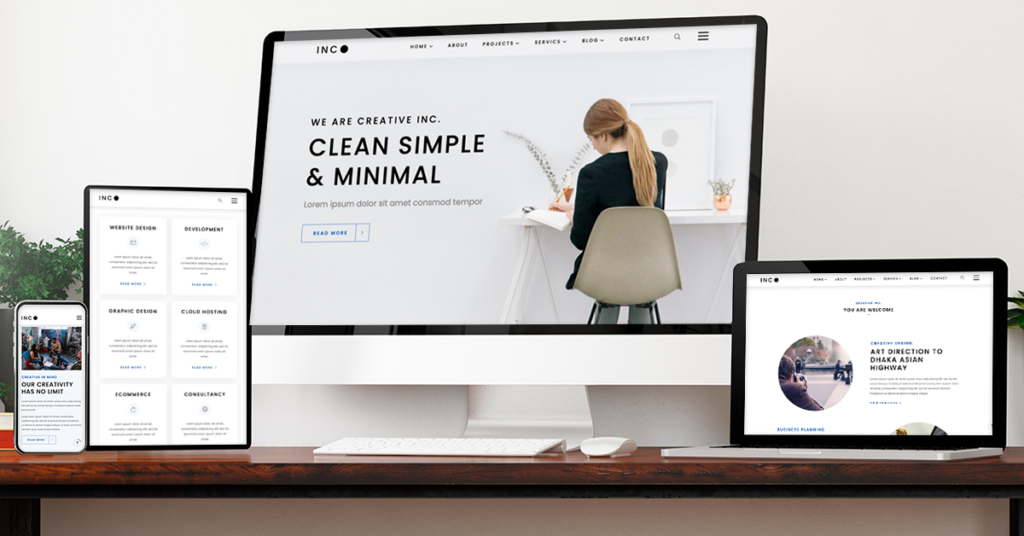
On the other hand, engaging web designers to create a custom website offers a tailored, unique presence on the web. This process involves planning, designing, developing, and testing stages, which ensures that every aspect of the site is aligned with your brand’s identity and goals. However, this meticulous process takes time, usually a minimum of 2 to 4 months. This timeline can extend further if your website has complex features, such as advanced functionality to sell products or intricate design elements.
A custom website allows for a deeper exploration of user experience and brand representation, which can be crucial for businesses whose online presence is central to their operation. The customization process also involves managing data privacy and training employees to support customers through various customization options.
For those in a hurry to establish an online presence, like businesses looking to quickly start selling products, a website template might be the preferred choice. However, for brands where the website is a significant part of the customer experience and brand perception, investing the time in a custom website designed by professional web designers is often worth the wait.
Brand

In the context of advertising and brand representation, the distinction between using a website template and creating a custom website is profound. When considering how your brand will be presented online, whether it’s through a basic landing page, a full-fledged website, or an online store, the choice significantly impacts how your brand is perceived.
While website templates offer a quick solution to get online, they often fall short in encapsulating a brand’s unique identity. These templates, for example, though convenient, might not align perfectly with your brand’s image or messaging. If your goal is to establish a distinct online presence, a template might constrain your ability to personalise and stand out.
A landing page can be a vital component of your online branding and marketing campaigns, especially for specific campaigns or product launches. However, if it’s built using a generic template, it might not convey the uniqueness of your brand effectively. Custom-designed landing pages allow for more creative control, ensuring that every element, from graphics to your own text, is tailored to reinforce your brand identity.
Owning a custom domain is a fundamental aspect of brand representation online. It not only adds credibility but also enhances brand recall. Whether you’re using a template or a custom website, ensuring you have a custom domain is essential. It serves as the digital address of your personalization and brand and should ideally be memorable and consistent with your brand name.
For businesses looking to sell online, the platform’s ability to reflect the brand’s ethos is crucial. Custom websites offer a significant advantage here. They allow for complete customization of the shopping experience, from the layout to the checkout process, ensuring that every step aligns with the brand’s ethos. In contrast, template-based solutions might offer limited customization options, which could result in a generic and less engaging shopping experience for customers.
The content on your company website, particularly your own text, plays a pivotal role in brand communication. A custom website offers the freedom to craft and position text in a way that resonates with your brand voice. On the other hand, website templates might restrict where and how you can integrate your text, potentially diluting the impact of your brand’s message.
When it comes to branding, a custom website offers unparalleled advantages. It provides the flexibility to integrate unique features like a custom domain, personalised landing pages, tailor-made e-commerce solutions, and the ability to infuse your brand’s voice through your own text. While website templates can serve as a starting point, they often lack the capability to fully capture and express the unique essence of a brand. For businesses serious about establishing a strong online brand presence, investing in a custom website is a strategic decision that can pay dividends in brand recognition and customer engagement.
Functionality
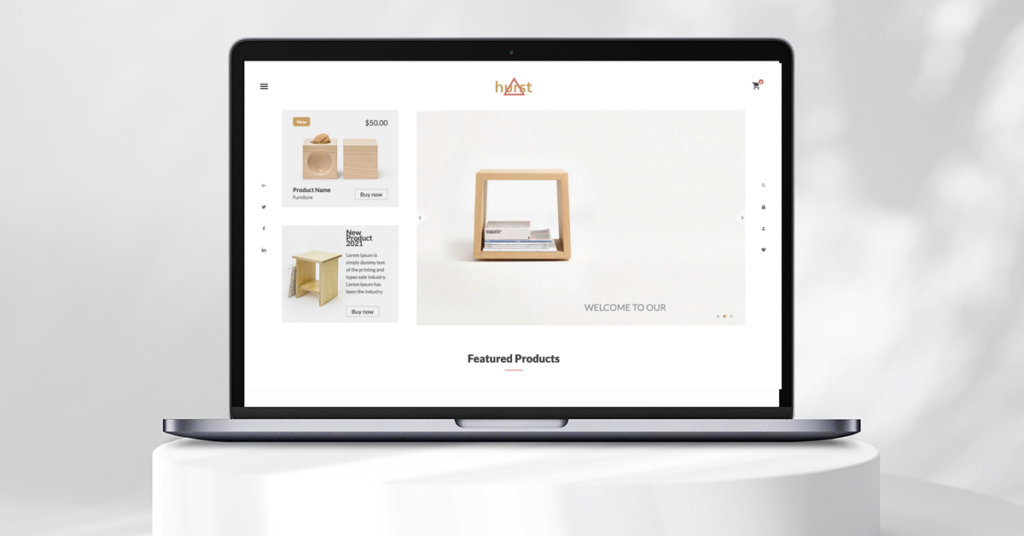
When examining the functionality of custom and template websites, there are several aspects to consider, especially when incorporating specific elements like minimal portfolio templates, HTML templates, drag-and-drop editors, email marketing, customization options, and website builders.
Additionally, mass customization allows brands to leverage online tools to offer personalized products at scale, enhancing the customer experience and meeting the growing demand for unique engagement.
Website Templates
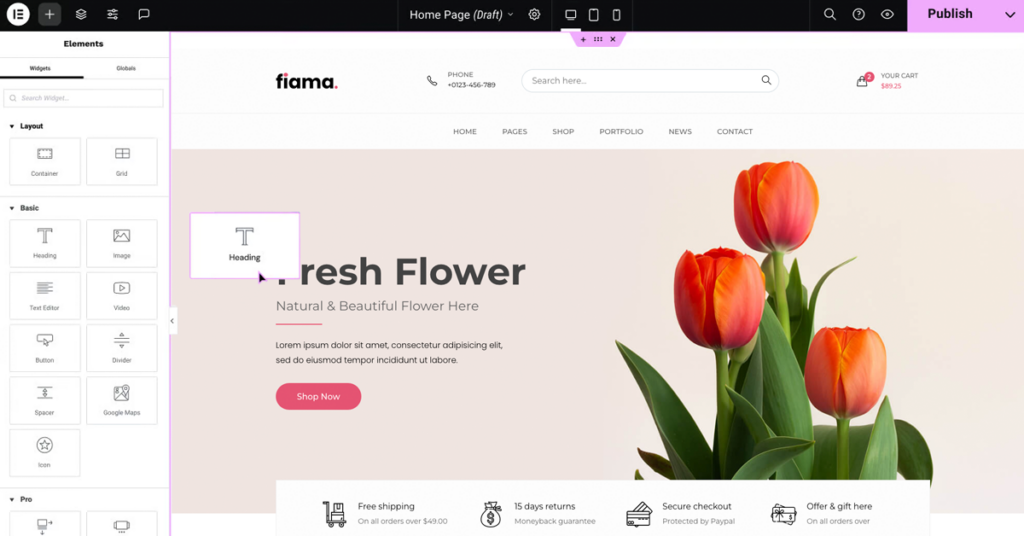
Advantages: Website templates, such as HTML templates, offer a basic structure and design, making them suitable for straightforward projects like minimal portfolio template. They are often user-friendly, with many templates providing a drag-and-drop editor for ease of use.
Limitations: These templates may lack advanced features and flexibility. Customization is usually limited to the options provided by the template, which might not suffice for unique brand requirements or complex functionalities.
HTML Templates

Use Case: HTML template are a popular choice for basic website needs. They are particularly beneficial for creating minimal portfolio templates, where the focus is on simplicity and showcasing work without unnecessary distractions.
Customization: While HTML template allow some degree of customization, they typically require knowledge of HTML/CSS for significant changes, limiting their flexibility for those without coding skills.
Drag-and-Drop Editors
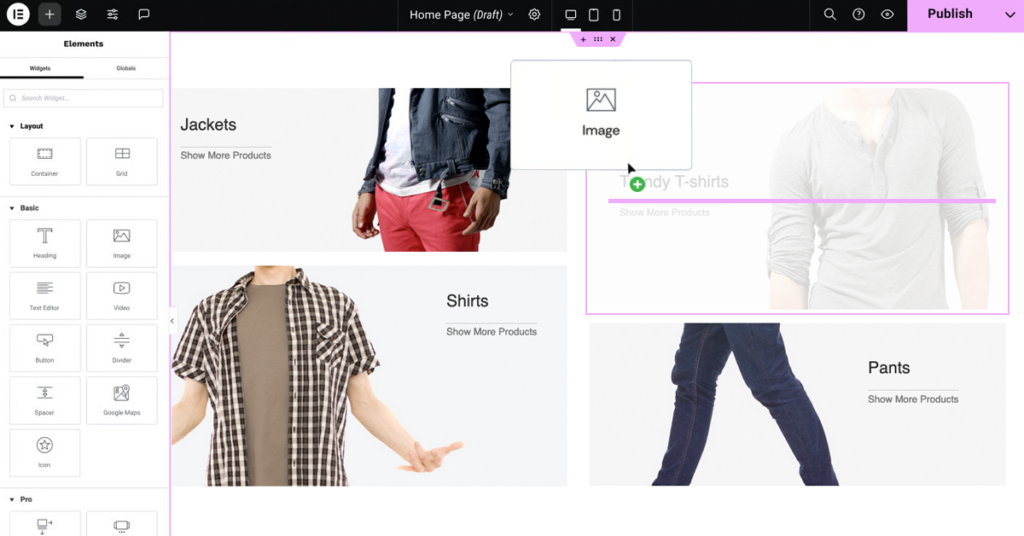
Accessibility: Many website templates come with drag-and-drop editors, simplifying the website building process. Users without technical expertise can easily create and customise their website layouts.
Constraints: These editors, while user-friendly, may not offer the depth of customization or complex features that a custom website design would allow.
Email Marketing Integration for Marketing Campaigns

Template Websites: Some templates may offer basic integration with email marketing tools. This is helpful for businesses looking to engage in email marketing without needing extensive customization.
Custom Websites: A custom website allows for more seamless and advanced integration with email marketing platforms, enabling more personalised and targeted campaigns.
Mass Customization and Website Builders

Template Customization: Website builders using templates offer a range of customization options, but these are often confined to predefined parameters. Businesses can modify colours, fonts, and layout elements to an extent.
Custom Website Builders: Custom website development offers limitless customization possibilities. Every aspect of the site can be tailored to meet specific business needs, from the user interface to complex functionalities.
Functionality for Business Needs and Customer Satisfaction

While template websites, including HTML template and minimal portfolio template, offer a quick and user-friendly solution with tools like drag-and-drop editors, their functionality is often limited. They might suffice for basic email marketing and product customization and needs. In contrast, custom websites, though requiring a larger investment, provide expansive customization and functionality options, accommodating intricate business needs and allowing for a more cohesive integration of various web technologies and marketing tools.
Custom websites also enable businesses to gain valuable insights into customer preferences and behaviors, which can be used to improve offerings and enhance customer satisfaction and loyalty.
Benefits of Customization
Customization offers numerous benefits for businesses, including increased customer satisfaction, loyalty, and retention. By providing personalized experiences, businesses can differentiate themselves from competitors and establish a competitive advantage. Custom websites allow for a higher degree of personalization, which can lead to more meaningful interactions with customers and ultimately increase sales.
Boosting Customer Loyalty through Personalization
Personalization is a key aspect of customization, and it can have a significant impact on customer loyalty. By providing personalized experiences, businesses can show customers that they value and understand their individual needs. This can lead to increased customer satisfaction, loyalty, and retention. Consider using data and analytics to inform your personalization efforts and create targeted marketing messages that speak to your customers’ interests. Personalized marketing campaigns can significantly enhance customer loyalty, making customers feel valued and understood, which in turn fosters long-term relationships and repeat business.
By integrating these new sections, the article will offer a comprehensive guide to choosing between a custom website and a template website, emphasizing the importance of understanding business needs and the benefits of customization in marketing strategies.
Flexibility & Scalability for Competitive Advantage

As your business grows, so do your website’s demands. Website templates may provide a satisfactory starting point for small or new businesses. However, as traffic increases and your business scales, these templates often struggle to keep up. The excess features that are not utilised still consume resources, potentially slowing down your site’s loading times, which is detrimental to user experience and SEO rankings.
In contrast, custom websites are designed from the ground up to address your specific business needs. They offer the flexibility to integrate only the features and functionalities that are essential to your business model specific needs. This streamlined approach not only makes the website more efficient but also ensures that it remains relevant and effective as your business evolves.
Custom websites can be easily modified and updated to accommodate new business strategies, changes in consumer preferences and behaviour, or technological advancements. This adaptability ensures that your website remains a potent tool for business, capable of supporting new services, products, or marketing strategies.
Without the burden of unnecessary features, custom websites typically perform better in terms of loading times and overall efficiency. This performance edge becomes increasingly significant as your customized website handles more traffic and data, ensuring that the user experience remains smooth and professional.
Although the initial investment in a custom website may be higher than opting for a template, the long-term benefits often outweigh these initial costs. Custom websites are less likely to require major overhauls or face scalability issues, which can lead to significant savings over time.
The Bottom Line

While choosing between a custom and template website strategy can initially seem daunting, understanding your needs in terms of budget, time, brand representation, functionality, and scalability makes the decision clearer. Custom websites, free from the constraints of template alternatives, offer tailored solutions for your brand and are designed to evolve with your business and customers alike. Despite their higher initial cost, they prove more beneficial in the long run.
Join us for an exclusive Coffee Session at our select distinguished outlets. Here, you can chat with our team of professional web designers, explore unique design possibilities, and find out how a custom website can elevate your business. It’s the perfect opportunity to get personalised advice and insights into the latest web design and technology trends.




